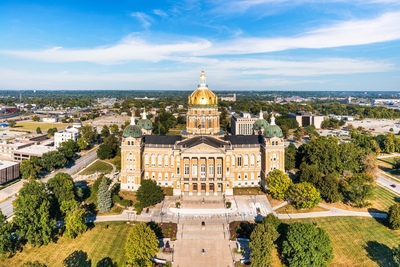
State Government Affairs, Elections & Campaigns
State AG Races to Watch in 2026 and Why You Should Care
February 4, 2026 | Maggie Mick
September 28, 2020 | Billy Culleton

Key Takeaways:
State government affairs professionals have made considerable progress conducting lobbying remotely and maintaining relationships with policy stakeholders. State policymaker groups, like the National Conference of State Legislatures (NCSL) or American Legislative Exchange Council (ALEC), have adjusted to the “new normal” as well by offering audiences digital programming options in place of traditional in-person conferencing that typically fills up the summer calendar. With a handful of virtual state policymaker conferences now completed, we see several trends that could show up as we move towards the election and into 2021.
A few weeks ago, NCSL wrapped up their much anticipated virtual conference, “NCSL Base Camp.” The three-day online conference featured a host of leading policy experts and policymakers providing insight on the latest state policy action on public education, clean energy, redistricting, health care, and the 2020 elections. Conference attendees, while not visible on screen, were allowed to engage with presenters via the chat function, a common feature in most Zoom-style conferences we’ve participated in this summer. The chat feature gives audience members a hassle-free way to ask questions without the dread of having to stand up and speak into a microphone. The anonymity of being a participant makes crowdsourcing questions also easier and allows for sidebar discussions.
People may wonder whether networking opportunities have suffered through virtue conferencing. In some ways, yes. We all miss face-to-face interactions, but increased accessibility of content and interaction with presenters and other participants is a benefit of virtual programming. State policymaker groups have also adjusted pricing to attend virtual conferences so the return on investment of sitting in on a session in your sweatpants makes it a no-brainer for continuing relationship building in the government affairs world.
While adjusting to the remote work lifestyle has challenged us all, state policymaker groups have gotten creative in addressing the challenges of engaging with larger audiences. The Council of State Governments (CSG) is set to announce their upcoming national conference on October 5. With details yet to be announced, we do know that the group will host daily virtual programming — starting October 26 and running through December 18 — that is free to CSG associates, CSG partners, and all state government officials and staff. This multi-month conference could change the traditional timeframe state policymaker groups structure meetings.
The Public Affairs Council (PAC) held their virtual “State and Local Government Relations Conference” this past week. Since their Digital Media and Advocacy Summit, PAC has changed some features, such as making all sessions live and adding virtual networking reception “tables.” Expect state policymaker groups to continue exploring different ways to engage audiences as we enter the winter months.
An ongoing theme from most professional interactions this year is the difficulty of engaging and networking remotely. Virtual conferences struggle to replicate the in-person networking experience we’ve all grown to love; and that’s okay. Building professional relationships during this time may not rely heavily on attending digital conferences but rather in the form of emailing or calling people you saw regularly before 2020. While interacting with people has changed this year, networking can still continue on through creative digital ways.
MultiState’s team is equipped to help you strategize and manage engagement with groups like these in the policy community. Even though the industry has shifted to being more remote, it’s still important to build meaningful relationships with the right people. From think tanks and lawmaker groups to policy influencers, media, and industry trade groups, where should you focus your attention? MultiState can get you up to speed and make sure you’re educating and engaging with key policy influencers who will validate and amplify your message. Explore more of what we can do for you here, or reach out to discuss how we can plug you in to the policy community.

February 4, 2026 | Maggie Mick
-f16ae1-400px.jpeg)
February 4, 2026 | Bill Kramer

December 10, 2025 | Bill Kramer